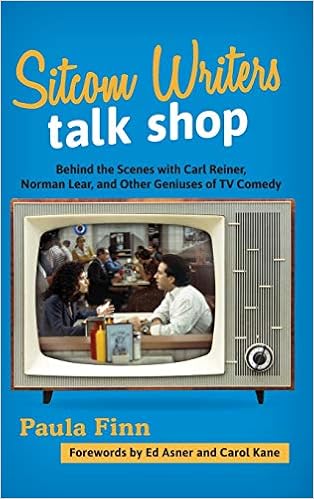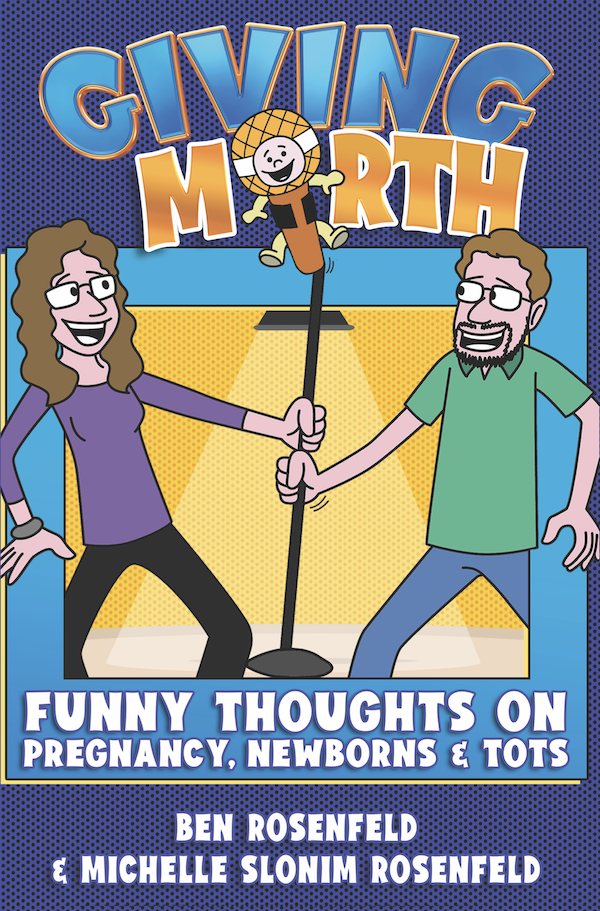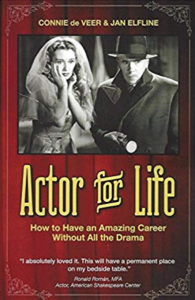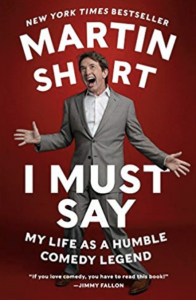I recently read “Professor At Large: The Cornell Years” by John Cleese. Here’s the quotes I found most interesting.
“The first question to ask is, when does this decision need to be made? And that’s when you take the decision. Don’t take it until then, as new information, unexpected development, and – perish the thought – better ideas may occur.” (2)
“In the west today, hurrying has become a sort of mind–set; we do it automatically. Yet after decades of inventing time saving devices, we have less time than ever to do the things we want. So doing everything faster is not necessarily the answer. Nor, paradoxically, is it necessarily very efficient. Remember the old IBM maxim: don’t confuse activity with achievement.” (3)
As Thoreau pointed out, technology is simply an improved means to an unimproved end.“ (4)
He found that it wasn’t IQ, or any other kind of intelligence; it wasn’t how hard they worked. The only difference was that the most creative architects knew how to play with a problem. So when they needed a creative solution, they could switch their minds into a playful mode, where they would just fool around with the problem, chew it over, explore it out of pure curiosity, for its own sake, because they got really interested.” (13)
“So when we need to innovate, to create, we need to access our tortoise mind. And that involves nothing more complicated than giving ourselves permission to stop trying so hard. To forget for the moment what kind of answer we think we want and just let our brains go soft and chew over a problem in a slightly contemplative, open-minded way, to let the mind wander freely, explore associations and hunches, try things out – without worrying where it’s all going.” (13)
Pressure – whether it’s a shortage of time, constant interruptions, fear of not producing a result, or worry about the opinion of our superiors or colleagues – it’s pressure that stops us accessing our tortoise minds. Any kind of pressure forces the brain to focus more narrowly on finding a quick, articulate, and preferably clever-sounding solution. And the greater the pressure, the tighter the focus, the more narrow the tunnel vision, the more conventional the thoughts. So if we are to use our tortoise mind, we must, for the time being, avoid pressure.” (14)
“The creativity research I mentioned earlier shows that more creative people are better at tolerating the anxiety and discomfort of not resolving an issue straightaway. So just stick at it and try to get interested in the problem for its own sake. (15)
“It’s really as simple as that: when people feel free from pressure, free to say the first thing that comes in to their heads, free to play games, make jokes – when they drop their defenses so they’re quite thoroughly unselfconscious-they start being creative.” (17)
“If you want to write about ideas, it’s unlikely that you’re going to have much luck in the movies.” (38)
“It’s very strange to me that a lot of the very best people always have this feeling, “I got away with it.“ And I think the reason is this: if you are creative, you’re always, every single time, you’re going into unknown territory and you cannot guarantee that it’s going to work. Do you wanna guarantee it’s going to work? Then just use the formula. Just do something derivative, same as you did last time. It won’t be a disaster and, of course, it won’t be very interesting. But if you’re really trying to do something new each time, trying to stretch yourself, you never know when it’s going to be a disaster, so you always feel, I don’t really know what I’m doing. And if it comes off, you just feel you’re lucky.” (44)
“When you’re young and you haven’t written so much, you tend to really love what you’ve written. And when you kind of get old and tired and disillusioned and you’re about to die, like Bill and me, then it’s much, much easier to throw stuff away because you know you can easily write something else.” (47)
“I was trying to keep three threads of the story going at the same time and I put it on the page, cutting: ABC, ABC, ABC. Charlie Crichton said to me, “you can’t do that.“ And I said, “I can’t do ABC, ABC?“ He said, “no, no. You’ve got to go ABC, BC, AC. But you can’t go ABC, ABC, ABC.” (53)
“One of the problems with a lot of comedy that is written is that people write stories that could be dramas and then try and put jokes into them. So be very, very painstaking when you’re constructing comedies. Create funny situations, which will take much, much longer. But your reward is that the dialogue comes so easily because the situation’s funny.” (60)
“One of the greatest forms of dirt is negative emotions and habitual indulgence in them. The greatest filth in a man is negative emotion.” (88)
Somerset Maugham, the writer, said, “by the time you get to 50, you’ve either met everyone or they look like someone you’ve met.”” (94)
“Police were no better than any of us at telling whether people are lying because they think everyone is lying. And the reason they think everyone’s lying is that anyone being questioned by a policeman tends to be anxious, and they send out anxious signals and the police make the unjustified jump of assuming they’re anxious because they are lying.” (113)
“People at lower levels of mental health are very uncomfortable with ambiguity and paradox and leaving anything unresolved, any element of doubt. They like certainty and, with it, they like authority.” (151)
“at the bottom level, Christ’s teachings are seen as extremely important rules which must be kept precisely because focusing on the letter of the law, rather than the spirit of the law, is characteristic of behavior at lower levels of mental health. At the middle level of mental health, people pay more attention to the spirit then they do to the letter of the law… At the top level we can read these and understand better how our minds work and what we need to do to make our minds work differently if we are ever to be transformed or reborn. We’re helped to “repent” in it’s real meaning of “rethink.”” (157)
“Robin Skynner felt that, unless there is something greater than you that you subscribe to, you are always going to stay at a lower, narrower, more selfish level and be less happy as a result.” (160
“Do you know that during the doctors’ strike in New York a few years ago, the death rate went down? …When cardiologist leave the hospital and go to conferences, the death rates at the hospital drop.” (206)
“33% of the American population believe that they are going to be billionaires within the next five years.” (208)
William Goldman:
“That fear of having it be over permeates everything in the entertainment business.” (23)
“When you write… You have the power to publish what you want. It’s your baby. In a movie, it’s everybody’s. So essentially, no matter who you are, you have no control.” (25)
So “kill all your darlings“ means once you’ve figured out what your story is, you must protect it to the death.” (27)
I then try and write very briefly 25 or 30 words, which I’ll put on my wall, which is the spine of the piece, which is the story. In other words, the King movie opens with Jimmy Caan finishing a novel, getting in his car in Colorado, driving, getting caught in a storm, having an accident. So I wrote, “blizzard.“ That’s the first five or eight minutes of the movie. Then I wrote, “rescue.“ That’s when Kathy Bates comes. And then I work down and, once I have that thing on the wall – I tape it to the wall, literally –that’s the movie. The rest of it then becomes a matter of rote work. The hard part is reading and rereading or researching and trying to figure out what is the story we’re trying to tell in this case.” (31)
“Movies are not about snappy dialogue. It helps if the people are supposed to be intelligent, but that’s not what movies are about. Movies are about making the story work on camera-making it be as surprising and interesting as you can for the audience who has come for the night.” (32)
“If you can make the last minutes of a movie a crescendo-I don’t mean a bloodbath, I mean a crescendo-you’ll have a hit.” (33)
I think we were all strange, you know, nerdy. And I think, suddenly when people tell you you’re wonderful, you want to believe that so badly and, in Hollywood, you do and your careers are over.” (45)
“if you don’t need to know that, get rid of it. Movie writing is about connectives: this scene connects with that scene connects with the next, and there’s a kind of inexorable thing that happens as it rides you along toward the climax of the movie. That’s hard to get right. Anything that stands in the way, you’ve got to get rid of. Sometimes your best writing is what stands in the way of it.” (46)
“There’s a book I always talk about that is the most simple piece of storytelling, the little engine that could. Somehow, in that little children’s book, we all want the toys to get across the mountain. That’s all we have to do: get people involved with wanting.” (51)
“I think if you don’t have the audience caring, wanting the story, it doesn’t matter how wonderful or what else it is.” (52)
No screenwriter has ever had control. If you want to become a writer-producer or a writer-director, it would be different.” (52)
All I ever worry about when I’m offered something is, “can I make it play? Can I figure out a way to tell the story? Would I want to see this movie? Would I be excited or pleased or whatever it is by it?“ If those answers are yes, then I’ll say, “yes, I’ll try and write the movie for you.“ (54)
“Movies don’t require brilliant dialogue. It just has to be solid and tell the story. Movies are not about dialogue. It’s one of the great myths. Screenwriting is not about dialogue.” (60)
“I tend to write for dead actors… It gives you a fix on the character your writing.” (63)
If you write a good line at the end of a scene and the secondary performer has that good line, don’t do that! Rewrite the scene so the star has that good line.” (69)
A great producer told me, “add 1/3 for the shit.“ That’s a line about stars. If you’re going to have a star, he’s going to cost you.” (71)
“Remember this: stars have no flaws. I’ve written this and written this. They are perfect. A star will not play flawed. They will not play flawed.” (71)
Stephen Ceci:
“Pretty much every public figure, people rate them as being more attractive after they’ve seen them a lot than they did the first time they saw them.” (108)
If you liked the quotes, buy the book here.













